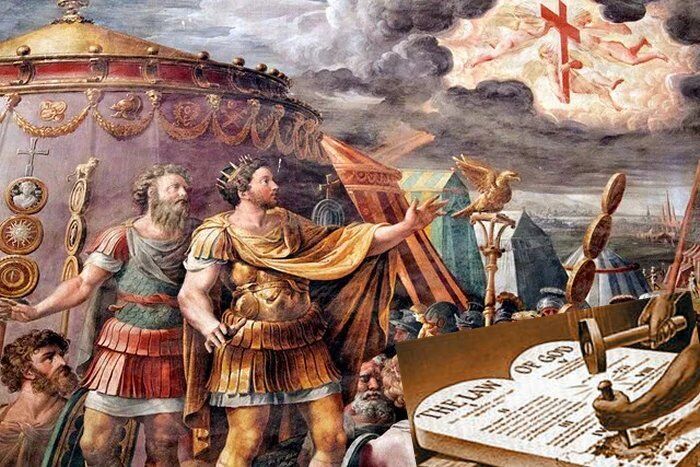History Channel documentaries and pop historians have argued that when Constantine converted to Christianity in the fourth century, he was merely following the religious demographic trends of the Roman Empire and thought paganism to be a political dead end. The idea makes sense at first glance. But the story of Constantine’s conversion—and later the entire empire’s—goes far beyond political opportunism (although there is plenty of that).
Constantine did not choose his new religion to chase after changing demographics in the Empire; Christianity was a lower-class religion disfavored by the pagans who overwhelmingly made up the Roman army and cavalry—the exact people that an emperor really needed to appease to hold onto power. Plus, recent studies on Constantine argue that Christianity would have spread regardless of the emperor’s choice, although it would have happened at a later date.
The Roman Catholic Church did drape itself in Roman symbolism and forged fictional lines of continuity between itself and the empire, but only after the sixth century, when the Western Roman Empire had completely collapsed and become a ghost that haunted Europe throughout the Middle Ages. Any resemblance between the empire and the church came after the former collapse and was largely coincidental.
Cite This Article
"Constantine’s Conversion to Christianity: Opportunism or a Sincere Gesture?" History on the Net© 2000-2024, Salem Media.
April 20, 2024 <https://www.historyonthenet.com/constantines-conversion-christianity-opportunism-sincere-gesture>
More Citation Information.

